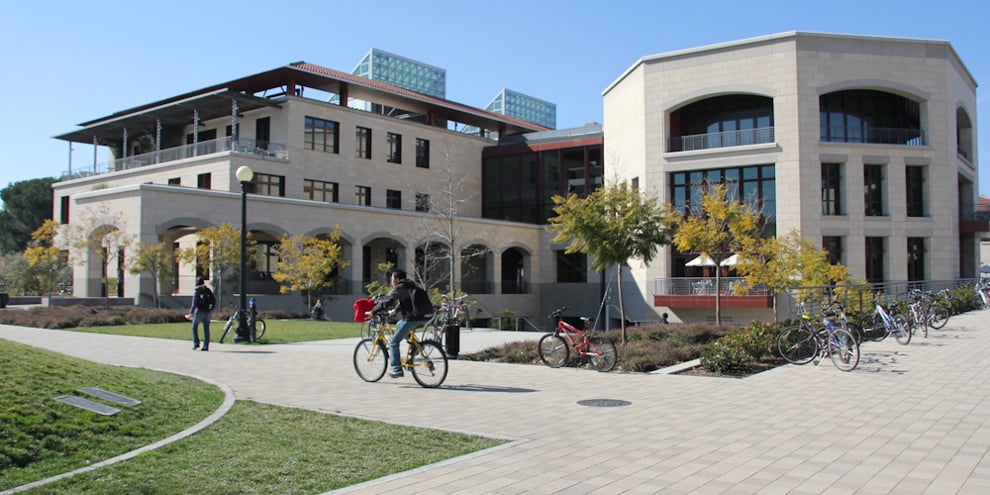In an effort to increase accessibility for first-generation low-income (FLI) students and encourage greater exploration of different disciplines, the Faculty Senate voted in May to impose a 100-unit cap on all undergraduate majors. The new policy, which will go into effect for the 2021-22 school year, was adopted following concerns that departments with high unit requirements were not accessible for graduates of under-resourced high schools.
During the May senate meeting, Dean of the School of Engineering Jennifer Widom said that unless students from under-resourced high schools started down the track of their intended major “on day one,” they would be “locked out of certain majors” due to high unit requirements, particularly those in the engineering department.
Echoing Widom, Stephen Graham M.S. ’74 Ph.D. ’76 and Dean of the School of Earth, Energy and Environmental Sciences, said that he felt confident in departments’ abilities to reconstruct their curricula in more accessible ways while still preserving the quality of education.
Despite the proposal’s intentions, faculty and students have questioned whether it will actually benefit FLI students, raising concerns about how the cap may further increase the barrier for entry into certain majors.
Ayush Pandit ’22, co-president of the First-Generation and Low-Income Partnership (FLIP), said that while he was “initially really happy” that the administration was responding to FLI students’ concerns about inaccessibility, he is worried about how departments will implement the policy.
“What I would hope that majors and departments would do is really look at classes and try and construct them in such a way that they’re more inclusive and more open by explicitly focusing on students who might need that extra support,” Pandit said.
Even so, professors and students have said that this hope might be an unrealistic expectation. Kevin Longoria ’22, who is studying Management Science and Engineering and is also a part of FLIP leadership, said that the cap “will not benefit the FLI community,” especially in the engineering majors which the proposal is meant to target.
“After talking to my friend who is a MechE [mechanical engineering] major, we felt that having a unit cap might actually make some courses more challenging and be misleading in the number of units it is listed as,” Longoria wrote in a statement to The Daily. “If now I have felt some introductory engineering courses have been fast-paced, I cannot imagine how limited our actual preparedness and learning might be with this unit cap.”
Mechanical engineering professor Juan Santiago agreed that there is “no evidence whatsoever” that a unit cap will help FLI students. He shared the “two most likely responses” that he believes departments will take to reduce their unit counts. The first possibility, Santiago said, is that departments will assume “that the students possess certain basic math and physics skills before entering the major,” thereby forcing students to take more prerequisites. According to Santiago, the second possibility is that departments will increase “the content-to-unit ratio,” most likely on introductory courses, meaning students will still have to learn the same amount of course material for fewer units.
“This will increase the barrier to entry by requiring more preliminary classes or making the first classes they encounter in the major more difficult,” Santiago wrote in a statement to The Daily. “In brief, the 100-unit cap will raise the first rung of the Engineering ladder.”
While it is unclear whether the unit cap itself will benefit the FLI students that it aims to help, it does target the problem of inaccessibility that students have been struggling with for years. Pandit said it is unfair to expect students from different backgrounds to succeed equally, particularly in unit-heavy majors.
“People are coming into the class with wildly different levels of knowledge where they’re starting at, and they’re all expected to walk away with the same things,” Pandit said. “And that doesn’t really make sense from a practical standpoint, from a logical standpoint, even just from an empathy standpoint.”
“Everybody at Stanford is super self-driven — everyone has worked incredibly hard to be here,” he added. “There doesn’t need to be more gatekeeping.”
After studying programs offered by peer institutions, Santiago proposed other methods of increasing accessibility that he believes would be more effective than imposing a unit cap. He recommends options such as “preparatory courses and summer programs” for accepted high school seniors that would grant them unit credit, “additional quarters of financial aid” for FLI undergraduates and “tutors, mentors and academic advisers” from the School of Engineering for underclassmen.
Other possibilities could include building off of or expanding Stanford’s existing programs. Pandit and Longoria both recall how opportunities such as Additional Calculus for Engineers (ACE) and extra summer classes were helpful for them in pursuing an engineering degree.
“I have greatly benefitted from ACE classes in calculus and CS [computer science] and, given they are targeted for prerequisite courses, they have helped with the learning curve in higher courses,” Longoria wrote. “In addition, FLI students may also be interested in taking a class during the summer that prepares them for more intensive major courses.”
Pandit also praised the ACE program, saying that departments should try to incorporate it more deeply into the core of their majors to make their classes more accessible.
“Those types of things, having them baked into the majors where they are always an option, are fundamentally the most important thing you can do,” he said.
Contact Jessica Zhu at jesszhu ‘at’ stanford.edu.
